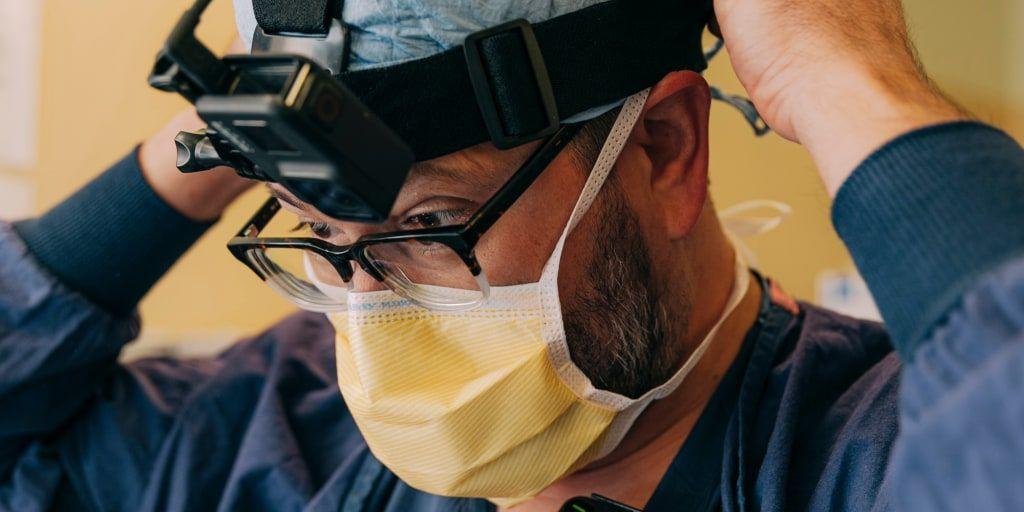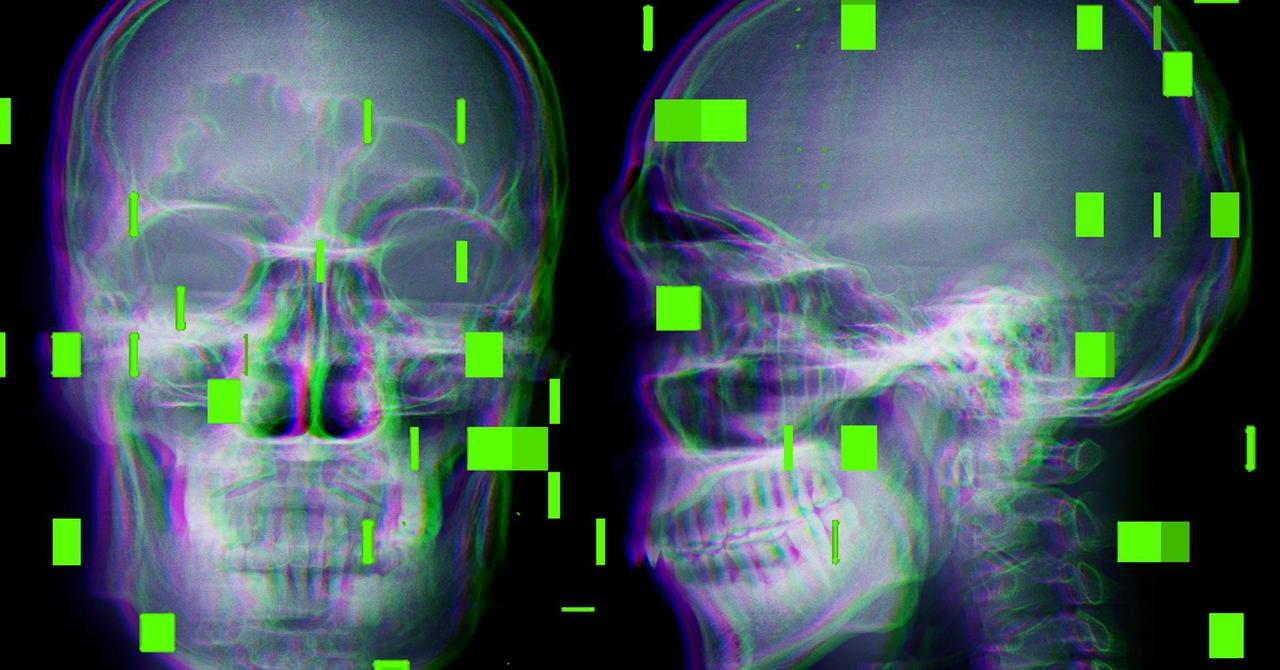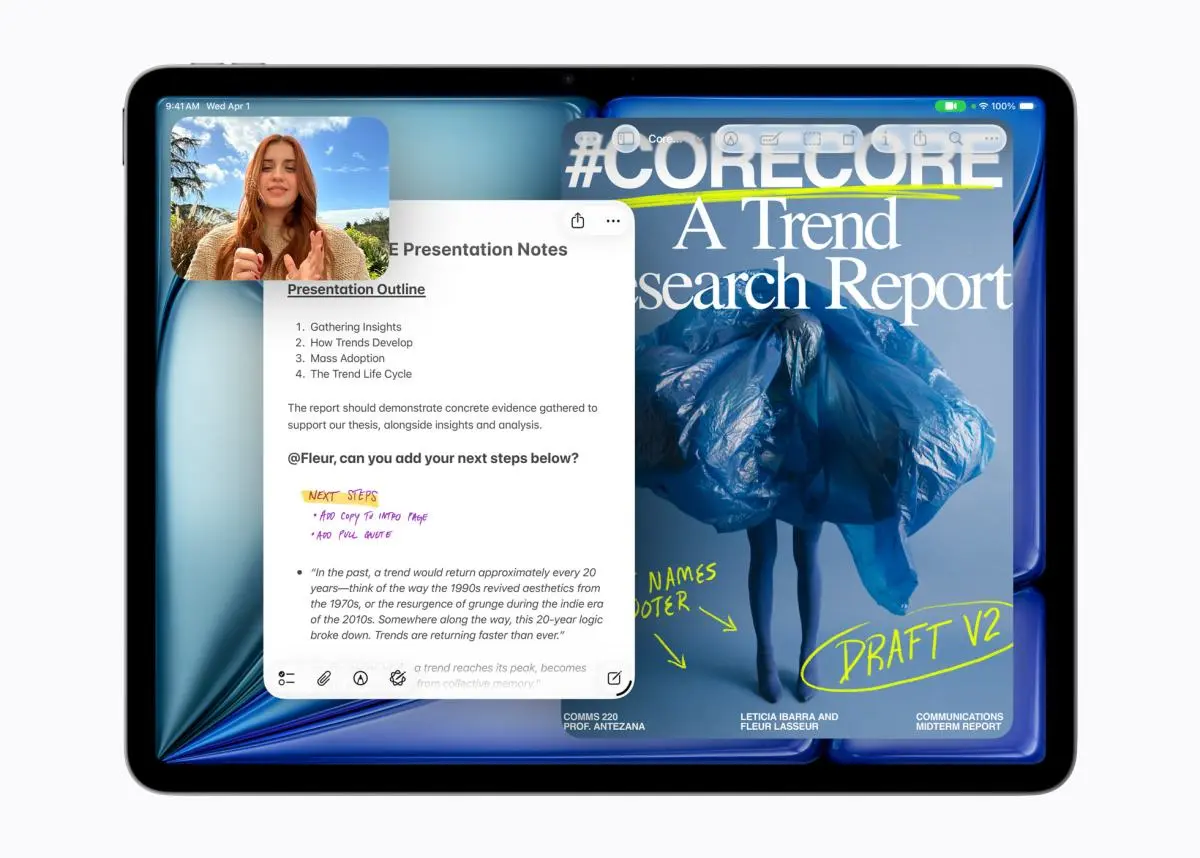AI-Powered Smart Glasses: A Potential Game-Changer in Preventing Medication Errors
2 Sources
2 Sources
[1]
Medical errors are still harming patients. AI could help change that.
Despite these attempts, medication mistakes still occur with alarming regularity. "I had read some studies that said basically 90% of anesthesiologists admit to having a medication error at some point in their career," said Dr. Kelly Michaelsen, Wiederspan's colleague at UW Medicine and an assistant professor of anesthesiology and pain medicine at the University of Washington. She started to wonder whether emerging technologies could help. As both a medical professional and a trained engineer, it struck her that spotting an error about to be made, and alerting the anesthesiologists in real time, should be within the capabilities of AI. "I was like, 'This seems like something that shouldn't be too hard for AI to do,'" she said. "Ninety-nine percent of the medications we use are these same 10-20 drugs, and so my idea was that we could train an AI to recognize them and act as a second set of eyes." Michaelsen focused on vial swap errors, which account for around 20% of all medication mistakes. All injectable drugs come in labeled vials, which are then transferred to a labeled syringe on a medication cart in the operating room. But in some cases, someone selects the wrong vial, or the syringe is labeled incorrectly, and the patient is injected with the wrong drug. In one particularly notorious vial swap error, a 75-year-old woman being treated at Vanderbilt University Medical Center in Tennessee was injected with a fatal dose of the paralyzing drug vecuronium instead of the sedative Versed, resulting in her death and a subsequent high-profile criminal trial. Michaelsen thought such tragedies could be prevented through "smart eyewear" -- adding an AI-powered wearable camera to the protective eyeglasses worn by all staff during operations. Working with her colleagues in the University of Washington computer science department, she designed a system that can scan the immediate environment for syringe and vial labels, read them and detect whether they match up. "It zooms in on the label and detects, say, propofol inside the syringe, but ondansetron inside the vial, and so it produces a warning," she said. "Or the two labels are the same, so that's all good, move on with your day." Building the device took Michaelsen and her team more than three years, half of which was spent getting approval to use prerecorded video streams of anesthesiologists correctly preparing medications inside the operating room. Once given the green light, she was able to train the AI on this data, along with additional footage -- this time in a lab setting -- of mistakes being made. "There's lots of issues with alarm fatigue in the operating room, so we had to make sure it works very well, it can do a near perfect job of detecting errors, and so [if used for real] it wouldn't be giving false alarms," she said. "For obvious ethical reasons, we couldn't be making mistakes on purpose with patients involved, so we did that in a simulated operating room." In a study published late last year, Michaelsen reported that the device detected vial swap errors with 99.6% accuracy. All that's left is to decide the best way for warning messages to be relayed and it could be ready for real-world use, pending Food and Drug Administration clearance. The study was not funded by AI tech companies.
[2]
Can AI-Powered Smart Glasses Help Spot Medication Errors? | PYMNTS.com
Every day, someone dies from getting the wrong medication or improper dosages of the right one. Now, researchers at the University of Washington (UW) are working on ways to solve this problem in part by using artificial intelligence (AI), NBC News reported Sunday (May 25). Dr. Kelly Michaelsen, an assistant professor of anesthesiology and pain medicine, told the network she had read studies at the prevalence of medication errors among anesthesiologists and began to wonder if AI could help spot errors. "I was like, 'This seems like something that shouldn't be too hard for AI to do,'" she said. "Ninety-nine percent of the medications we use are these same 10-20 drugs, and so my idea was that we could train an AI to recognize them and act as a second set of eyes." Her research centered around vial swap errors, which cause 20% of all medication mistakes, the report said. These errors happen when someone selects the wrong vial of an injectable drug, or the syringe is incorrectly labeled, leading to the patient getting the wrong medicine. Michaelsen told NBC she thought these cases could be prevented through "smart eyewear" -- adding an AI-powered wearable camera to the protective eyeglasses worn by all staff during operations. Working with her colleagues in UW computer science department, she designed a system that can scan the immediate environment for syringe and vial labels, read them, and determine whether they match up. According to the report, Michaelsen's study, which was not funded by AI companies, showed the device was able to detect vial swap errors with 99.6% accuracy. PYMNTS looked at other ways AI can help improve outcomes in the medical field last year in a conversation with Dr. Michael Gao, co-founder and CEO of SmarterDx. He noted that hospitals spend an estimated $500 billion on administrative costs per year, just in the U.S. That's because traditional hospital billing systems involve a myriad of healthcare personnel, including nurses and medical coders, whose only task is to verify and convert clinical notes into billing codes. But by using AI, hospitals can "make sure that their receipts are accurate, that they have everything they should have and they don't have anything they shouldn't have," said Gao, adding that AI solutions can take the data around clinical care and match it against financial information to make sure hospitals "achieve 100% accuracy on 100% of charts."
Share
Share
Copy Link
Researchers at the University of Washington have developed AI-powered smart glasses that can detect medication errors with 99.6% accuracy, potentially revolutionizing patient safety in healthcare settings.
AI-Powered Smart Glasses: A New Frontier in Patient Safety
In a groundbreaking development, researchers at the University of Washington have created AI-powered smart glasses that could significantly reduce medication errors in healthcare settings. This innovation comes as a response to the alarming frequency of medical mistakes that continue to harm patients, despite ongoing efforts to improve safety protocols
1
.
Source: NBC
The Problem: Persistent Medication Errors
Medical errors, particularly those involving medication, remain a serious concern in healthcare. Dr. Kelly Michaelsen, an assistant professor of anesthesiology and pain medicine at the University of Washington, noted that approximately 90% of anesthesiologists admit to having made a medication error at some point in their career
1
. These mistakes can have devastating consequences, as evidenced by a tragic incident at Vanderbilt University Medical Center where a patient died due to a vial swap error1
.AI Solution: Smart Eyewear for Error Detection
Dr. Michaelsen and her team developed a system that integrates AI-powered cameras into the protective eyewear worn by medical staff during operations. This smart eyewear can:
- Scan the immediate environment for syringe and vial labels
- Read and interpret the labels
- Detect mismatches between syringe and vial contents
The system focuses particularly on vial swap errors, which account for about 20% of all medication mistakes
1
2
.Development and Testing Process
The development of this AI-powered device took over three years and involved several key steps:
- Obtaining approval to use prerecorded video streams of correct medication preparation in operating rooms
- Training the AI on this data and additional footage of simulated mistakes
- Rigorous testing to ensure high accuracy and minimize false alarms

Source: PYMNTS
Related Stories
Impressive Results and Future Prospects
In a study published late last year, the AI-powered smart glasses demonstrated an impressive 99.6% accuracy in detecting vial swap errors
1
2
. This high level of precision is crucial in addressing the issue of alarm fatigue in operating rooms, ensuring that warnings are reliable and actionable.The next steps for this technology include:
- Determining the most effective way to relay warning messages
- Obtaining Food and Drug Administration (FDA) clearance for real-world use
It's worth noting that this study was not funded by AI tech companies, maintaining its independence and credibility
1
.Broader Implications for Healthcare
The potential impact of AI in healthcare extends beyond medication error prevention. For instance, AI solutions are being explored to improve hospital billing accuracy and efficiency. Dr. Michael Gao, co-founder and CEO of SmarterDx, suggests that AI can help hospitals "achieve 100% accuracy on 100% of charts" by matching clinical care data against financial information
2
.As AI continues to evolve, its integration into various aspects of healthcare promises to enhance patient safety, improve operational efficiency, and potentially save lives. The development of these AI-powered smart glasses represents a significant step forward in leveraging technology to address persistent challenges in medical practice.
References
Summarized by
Navi
Related Stories
Recent Highlights
1
OpenAI secures $110 billion funding round from Amazon, Nvidia, and SoftBank at $730B valuation
Business and Economy

2
Pentagon accepts OpenAI's autonomous weapons restrictions after blacklisting Anthropic
Policy and Regulation

3
Trump orders federal agencies to ban Anthropic after Pentagon dispute over AI surveillance
Policy and Regulation








